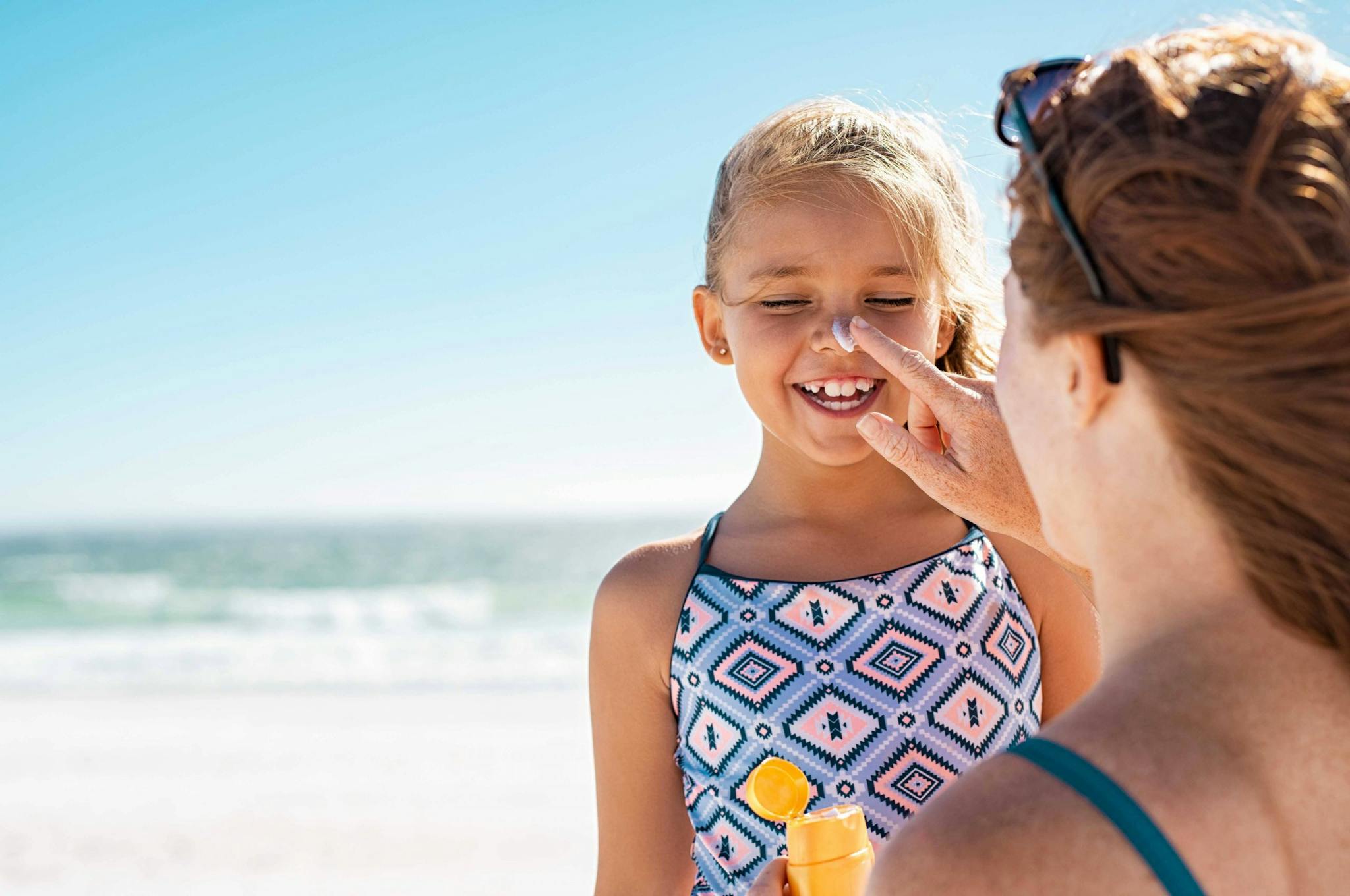
2024-07-12T16:54:51
Sunscreen Travel Tips
- Dermatology
July 30, 2021 | Dermatology • Medical Oncology

Summer is a great time to take advantage of the outdoors. From swimming in the lake to taking a family vacation to a national park, there are many ways you can have fun outside. While having fun in the sun, however, it is important to remember the negative effect that UV radiation can have on your skin if you are not careful.
There are many types of radiation, including high-intensity/high-frequency radiation, (x-rays and gamma rays), and low energy/low-frequency radiation (radio waves). UV rays are in the middle of this spectrum and have more energy than regular light but not as much energy as x-rays. Ultraviolet (UV) radiation is a type of electromagnetic radiation that comes from the sun. Man-made sources, such as tanning beds and welding torches, can also produce UV radiation.
There are three types of UV radiation:
Too much sun/UV ray exposure can potentially lead to sun-damaged skin, sunburns, wrinkles, and skin cancer, which is the most common cancer in the United States. In speaking about the dangers of skin cancer, the American Academy of Dermatology Association states that “skin cancer can affect anyone, regardless of skin color. Skin cancer in patients with skin of color is often diagnosed in its later stages when it’s more difficult to treat.” To avoid these potential risks, practice good sun safety.
There are many ways you can effectively practice sun safety this summer and all year round. Some of these include:
If you have any questions about UV Radiation or wonder if you might be at risk for skin cancers like Melanoma, contact our skin cancer specialists at any of our Revere Health Dermatology clinics. They can instruct you further on ways to protect your skin and offer skin cancer screenings to help you avoid future skin damage from the sun.

WRITTEN BY:
Lindsey LeBaron
Lindsey LeBaron has been working as the Marketing Assistant for Revere Health for the past three years. Lindsey has a bachelor’s degree in social sciences at Brigham Young University and will graduate with her master’s degree in global strategic communications at Florida International University in December 2021. Coupled with her master’s degree, Lindsey is also working on a certification in crisis management and consensus-building. Recently, she was awarded the honor of joining the National Communications Association as a member of the Lambda Pi Eta honor society. Lindsey is passionate about building lasting connections between communities to create lasting change and believes that communication is a vital element to building long-lasting relationships. When she is out of the office, Lindsey enjoys singing and playing the piano, going on adventures, traveling to new locations, and reading books about world affairs.


2024-07-12T16:54:51

2024-07-02T11:42:04

2024-07-01T13:49:28

2024-06-21T14:29:51
This information is not intended to replace the advice of a medical professional. You should always consult your doctor before making decisions about your health.